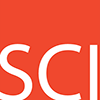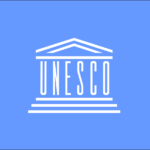Where are we going will all this? Why is it important in the first place? The following items focus mostly on the science side of these questions. There is some missing information here about big data and the quantities of information being generated in today’s society, but these questions—while very interesting—are also a bit beside the more central questions (at least for our immediate purposes) of why and how we gather, publish and teach.
SHORT VIDEOS (about 31 minutes)
- In this 6-minute video, Duke Professor Cathy Davidson talks about the impact of education on society and about the changing nature of education—that education today isn’t just about the facts, but about sharing what we know and realizing when we don’t know enough. http://bit.ly/1VBe53X (Big Think: Apr 2012)
- In this 4-minute video, Charlie Rose interviews Bruce Alberts, Shirley Ann Jackson and Paul Nurse about the value of studying science and how we might improve our approach to teaching science in the future. http://bit.ly/1VbPS5i (Charlie Rose: Apr 2008)
- Society’s attitude toward truth and science must begin with the voting public and not with our elected officials. In this interview with Slate magazine, Neil deGrasse Tyson talks about the importance of science to society and an informed democracy. http://slate.me/1VBaYsX (Slate: Oct 2015)
- What is future of information in society? In this 17-minute TED talk, Don Tapscott outlines the four principles of openness in the Internet world: collaboration, transparency, sharing, and empowerment. What changes will the Internet bring about, especially in the hands of the incoming generation of digital natives? http://bit.ly/1p9LlzM (TED: Jun 2012)
ARTICLES & REPORTS (to browse/skim)
- What are the biggest misconceptions that people have about scholarly publishing? This post by OSI delegate Ann Michael (and featuring commentary by several other OSI delegates) provides a good look at some of the conversation points that often come up. http://bit.ly/1Rk25RN (Scholarly Kitchen: Mar 23, 2016)
- Is our scholarly publication system distorting scholarship and misdirecting research expenditures? Writes author Neal Young (et al), “the current system abdicates to a small number of intermediates an authoritative prescience to anticipate a highly unpredictable future. In considering society’s expectations and our own goals as scientists, we believe that there is a moral imperative to reconsider how scientific data are judged and disseminated.” http://bit.ly/1SSZsqt (PLOS Medicine: Oct 2008)
- Are universities making an adequate effort to translate their research work for the greatest benefit of society? Are we dividing ever more scarce research funding appropriately? Is the pressure to justify research spending leading to suboptimal outcomes? Are private foundations with distinct agendas causing an unintended problem by driving project selection? These and many other issues are discussed in this recent article, “Is University Research Missing What Matters Most?” http://bit.ly/1NOF6ZZ (Chronicle of HIgher Ed: January 2016)
- In this recent interview with Marc Edwards, a Virginia Tech professor who studied the lead levels in Flint Michigan’s water supply, the case is made that if our systems to support scientists do not allow them to speak out and be heard, then we are helping corrode the public’s faith in science. http://bit.ly/1VHQV9U (Chronicle of Higher Ed: Feb 2, 2016)
- Transparency and reproducibility in science don’t necessarily stem from deceit, but from a lack of clear understanding by scientists about what is required and expected. This NIH training module provides a useful summary. http://1.usa.gov/22fRPwT (NIH)
- The Internet has brought profound new benefits to society, but also profound new challenges. In this February 4 New York Times editorial, Thomas Friedman argues that achieving real change requires much more than just generating a big social media presence, and that in fact (contrary to the hypothesis of Don Tapscott in his TED talk, above), this kind of presence might also erect unintended barriers to change. http://nyti.ms/1X3brmT (New York Times: Feb 4, 2016)










